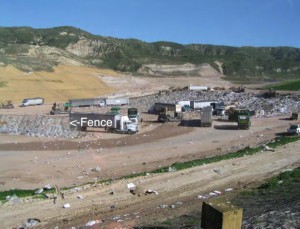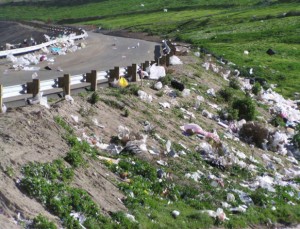Listed by Guinness World Records in 2010 as the ‘Most Ubiquitous Consumer Item’, many people view plastic carryout bags as free but there are hidden costs that can affect us all. First, it costs the stores money to purchase any type of bag they are giving you. Some stores view it as free advertising as people walk around with their bags and others view it as a convenience for customers, either way it impacts your wallet in added cost of goods. If littered, plastic bags can cost cities thousands of dollars in costs to clean storm drains. It is predicted that the Australian government pays in excess of $4 million every year to clean up plastic bags.
 If plastic bags make it to the ocean or other sensitive places and impact or kill wildlife, the costs may be impossible to calculate. If plastic bags are put into most conventional recycling bins they can gum up the recycling machinery and increase costs to the recycling process of more profitable materials. If plastic bags are thrown away they can still wreak havoc at the landfill and that’s the focus for today.
If plastic bags make it to the ocean or other sensitive places and impact or kill wildlife, the costs may be impossible to calculate. If plastic bags are put into most conventional recycling bins they can gum up the recycling machinery and increase costs to the recycling process of more profitable materials. If plastic bags are thrown away they can still wreak havoc at the landfill and that’s the focus for today.
At some landfills around the world, regulations require the surrounding area to be clean at the end of the day. Reports suggest up to 50% of airborne rubbish near landfill is the ‘convenient’ plastic bag. So at the end of the day landfills have to employ people to run around and pick up those plastic bags. They also initiate protable fencing to try and catch the bags as they fly away costing hundreds of thousands of dollars.
 Another important item to note is that plastic bag recycling is not effective. Plastic bag recycling is highly specialized and in most places plastic bags can’t be mixed in with the more profitable recyclables because the bags can ‘gum up’ the machinery. If you recycle 1 tonne of plastic bags it costs $32,000 yet the commodity is worth just $400 when you get the final product. Switching to paper is not the answer as there are added costs for those bags also. Domestically sourced reusable bags are the best option when possible. Keep your eyes open as reusable bags are often offered for free by various community groups or businesses.
Another important item to note is that plastic bag recycling is not effective. Plastic bag recycling is highly specialized and in most places plastic bags can’t be mixed in with the more profitable recyclables because the bags can ‘gum up’ the machinery. If you recycle 1 tonne of plastic bags it costs $32,000 yet the commodity is worth just $400 when you get the final product. Switching to paper is not the answer as there are added costs for those bags also. Domestically sourced reusable bags are the best option when possible. Keep your eyes open as reusable bags are often offered for free by various community groups or businesses.
For all of those reasons and more, plastic bag bans are needed. We call on cities throughout the world to act now. Reductions of disposable plastics are needed as the ocean is turning into a plastic soup and global population continues to climb – along with a desire by many emerging markets for more ‘stuff’. Support bag bans in your local community or be a leader and start your own movement.

Pingback: Paper or Plastic? – The Wisconsin International Review
Comments are closed.